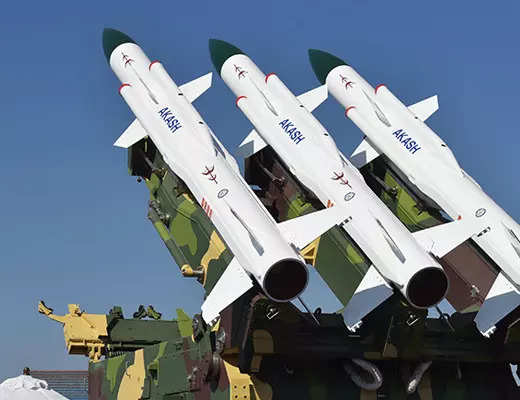- Reorientation of focus: Following the 2020 stalemate with China, the Indian Army moves its focus from the west to the north.
- Lessons from the Ukraine crisis: Insights from the ongoing conflict in Ukraine are affecting Army Air Defence (AAD) modernisation.
- New systems are being introduced in order to improve air defence capability.

What exactly is Project Akashteer?
- Project Akashteer intends to build networking and automation capabilities akin to the Indian Air Force’s system.
- Project Akashteer focuses on developing a comprehensive air defence picture for monitoring, tracking, and engaging air defence assets.
- Implementation deadline: The project seeks to complete implementation of radars, control centres, and weapons by March 2024.
New Technology and a Shifting Focus
- Shift in focus: The Indian Army moves its concentrate from the western to the northern borders.
- Mountainous air defence needs: The demand for lightweight radars and transportable weapon systems to meet the needs of mountainous terrain.
- Insights from the Ukraine conflict urge the study of emerging threats such as UAVs, loitering weapons, swarm drones, and cruise missiles.
Installation of New Systems
- Improved Akash surface-to-air missile systems: A contract for two regiments of improved Akash systems to increase air defence capabilities has been signed.
- Partnership with Israel: Collaboration with Israel to launch a medium-range surface-to-air missile programme.
- Quick reaction systems development: To satisfy essential air defence demands, the country is developing a fast reaction surface-to-air missile (QRSAM).
- Investigation of air defence guns: Ongoing efforts to acquire air defence weaponry in order to improve air defence capability.
Problems and Indigenization
- Component shortage: The Ukraine conflict has caused a global shortage of components and gear, slowing the pace of inductions.
- Indigenization is emphasised: Focus on encouraging indigenization and lowering reliance on imported air defence systems.
- Modernisation revitalization: Army Air Defence modernisation is being revitalised, with an emphasis on indigenous development and procurement.
The importance of the project
- Improved air defence capabilities: Focus on improving air defence capabilities for strong border security.
- Monitoring and cooperation have been improved: Initiatives for integration and automation improve monitoring, coordination, and situational awareness.
- Contribution to improved border preparedness and response capabilities.
The way forward
- Continual research and development: To remain ahead of shifting threats and problems, prioritise continual research and development.
- Collaboration on a global scale: Collaboration with foreign partners on the integration of sophisticated air defence systems and technology.
- Integration of sophisticated technologies: Integration of advanced technologies such as AI and machine learning to improve the efficiency and effectiveness of air defence operations.
- Future air defence strategies should prioritise innovation, efficiency, and effectiveness.
Source: https://www.thehindu.com/news/national/indian-armys-air-defence-widens-wings/article66954761.ece
